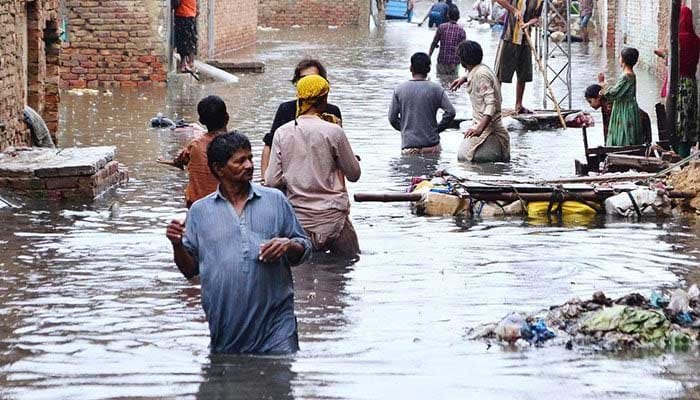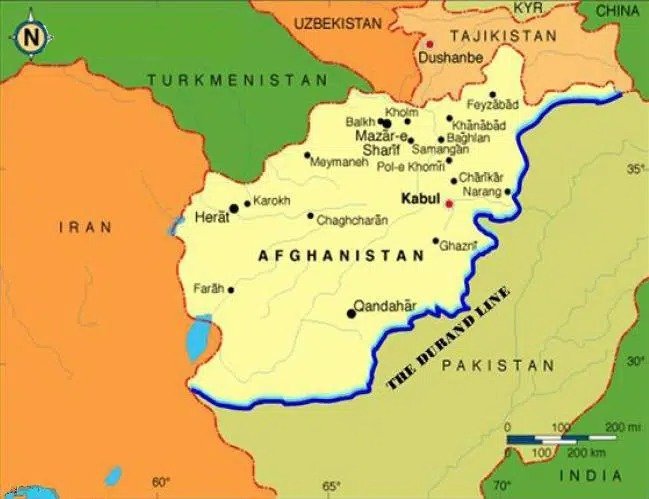Karachi: Prime Minister Shehbaz Sharif has constituted a 13-member high-level committee to devise strategies aimed at strengthening Pakistan’s resilience against climate disasters, including cloudbursts, flash floods, and urban flooding.
The committee, chaired by Federal Minister for Planning, Development and Special Initiatives Ahsan Iqbal, brings together federal ministers, secretaries, technical experts, and other stakeholders. Its mandate is to review existing institutional arrangements for disaster preparedness and response, assess the country’s critical infrastructure, and recommend measures to reduce environmental and urban vulnerabilities.
According to an official notification issued by the Ministry of Climate Change and Environmental Coordination, the committee will examine the effectiveness of Pakistan’s current flood protection and drainage systems while also exploring financing options such as climate finance for major Public Sector Development Programme (PSDP) projects. It will propose legal reforms to curb deforestation and environmental degradation, recommend targeted interventions to mitigate urban flooding, and evaluate the need for improved early warning systems, including the installation of modern radars. The body will also focus on enhancing the operational capacity of federal and provincial disaster management authorities, particularly the National Disaster Management Authority (NDMA). A comprehensive report or presentation is expected to be submitted to the prime minister within 10 days, with the Ministry of Climate Change providing secretarial support.
In a parallel development, the government has also set up a policy dialogue forum to engage provincial governments, federal ministries, semi-government bodies, civil society, and the media. This forum, which will meet on a fortnightly basis, has been tasked with shaping short, medium, and long-term strategies for climate adaptation and disaster mitigation.
The forum includes the federal ministers for climate change, communications, and water resources, along with the Prime Minister’s advisers on political affairs and inter-provincial coordination. It also comprises federal secretaries, the Chairman of the NDMA, the Director General of the Pakistan Meteorological Department, and representatives from all provinces, Azad Jammu and Kashmir, and Gilgit-Baltistan.
The dialogue platform will review the preparedness of federal and provincial authorities to handle natural disasters and assess the financial requirements for building flood reservoirs and drainage schemes. It will monitor the progress of flood prevention projects, emphasize the restoration of natural water channels by removing encroachments, and propose new legislation to penalize negligence that contributes to deforestation. In addition, it will work to upgrade forecasting systems to improve monsoon predictions and help develop efficient urban drainage strategies to ensure the rapid removal of rainwater in major cities.
Officials said these steps represent an important move toward developing a stronger national disaster management framework, better equipped to confront Pakistan’s growing climate vulnerabilities.









